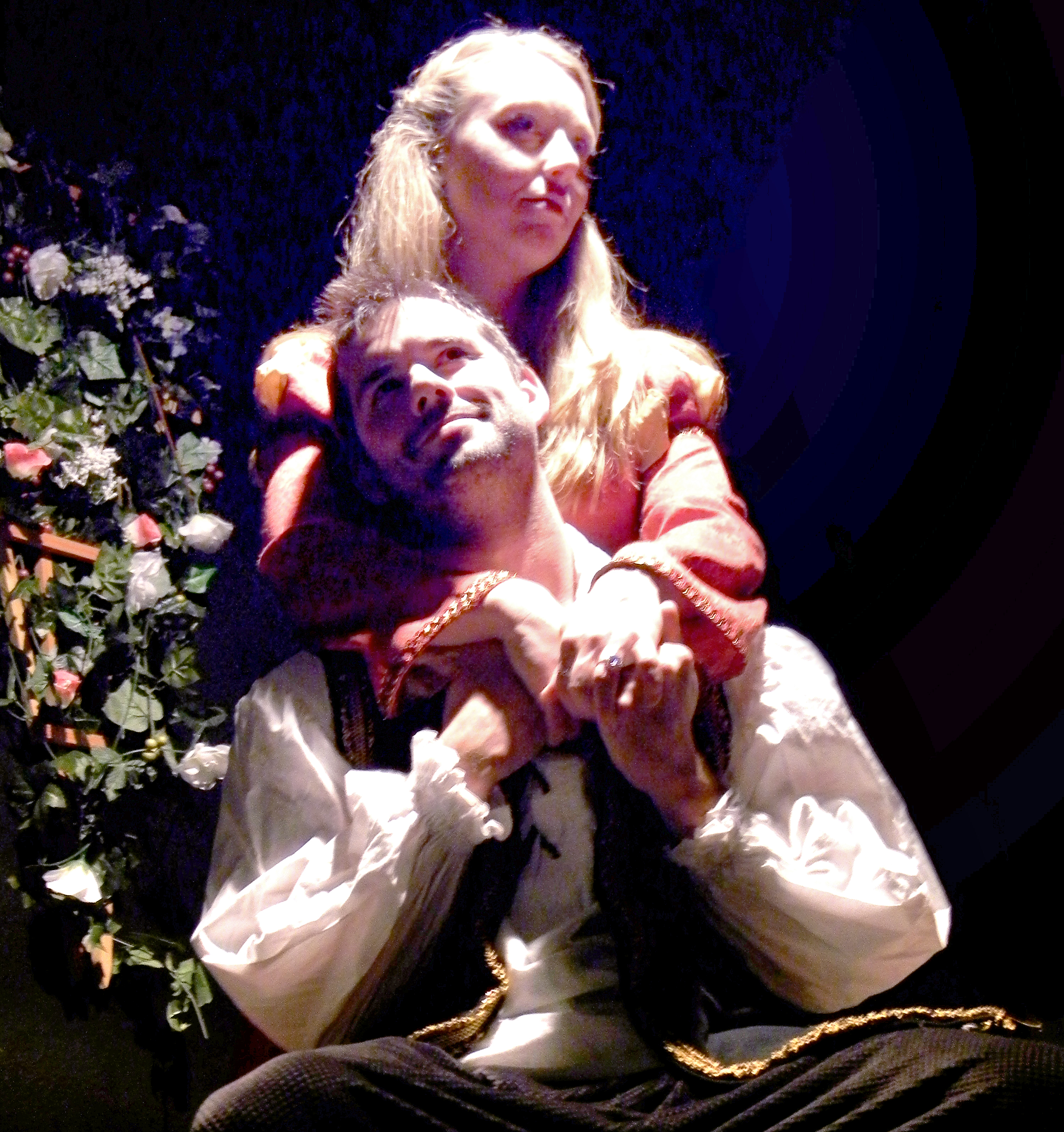Alumnus’ production of “Romeo and Juliet” cuts down to Shakespeare’s message

April Lowe and Cody Roberts perform as Juliet Capulet and Romeo Montague.
"ROMEO AND JULIET"
Fridays and Saturdays through May 28, 8 p.m.
The Attic Theatre and Film Center, $20
By Lenika Cruz
May 11, 2011 11:47 p.m.
When UCLA alumnus Craig Jessen responded to a call for directors to submit concepts for a production of “Romeo and Juliet,” he did not actually have one. While others suggested outrageous ideas for updating the play, Jessen told the producer he would do one thing: He would remain true to the story, telling it clearly and cleanly.
He got the gig.
“My “˜Romeo and Juliet’ allows the text to be the centerpiece, instead of pyrotechnics or setting it on the moon,” Jessen said.
After a two-week run in Santa Clarita, Jessen, who graduated from UCLA with a master of fine arts in theater last December, was invited to bring his pared-down production of “Romeo and Juliet” to the Attic Theater, a small venue in Los Angeles.
While many stagings of “Romeo and Juliet” employ a large cast, Jessen will use only 13 actors, including April Lowe as Juliet Capulet and Cody Roberts as Romeo Montague. Shakespeare enthusiasts may notice some sections missing entirely.
“Typically when people cut Shakespeare, they cut scenes so we wind up with an amputated play,” Jessen said. “But this has been line-by-line surgical editing, a scalpel around the edges.”
John Hope, who will play Lord Capulet, said that while many versions of “Romeo and Juliet” go on for three to four hours, Jessen tailored the play constructively.
“He’s cut out things he feels don’t appeal to modern sensibilities,” Hope said. “That way, the audience doesn’t have time to get bored, but you still get the story across.”
Although the play’s stage directions were written with long, flexible rapiers in mind for the duel scenes, Jessen’s production will use shorter, sturdier daggers. The decision required compromises that, according to Jessen, will actually heighten the story’s violence.
“The moments of violence are sudden and deliberate, rather than dance-like,” Jessen said. “Stage combat can be vicious or balletic ““ we’ve opted for the vicious side.”
For balance, Jessen also encouraged the actors to find humorous moments in the script to emphasize, considering the widely known tragic ending for Romeo and Juliet can often cast a grimness over the rest of the play.
“I feel like the audience (from the first run in Santa Clarita) was having a hard time laughing because they knew what they were going to see,” Roberts said. “Everybody knows what happens. (Romeo and Juliet) die. But it’s so sad in the end because it starts out so high, and then takes you so low.”
According to Jessen, his “Romeo and Juliet” holds surprises for those who have seen the play a hundred times before, as well as those with no prior exposure to Shakespeare. He said the way people spoke in Elizabethan England is actually closer to a modern American accent than a standard British one.
“These words were meant to have an earthy sound to them,” Jessen said. “It’s poetry, but that doesn’t mean everything sounds beautiful. Through poetic language we capture a variety of emotions ““ we get first love but also hatred.”
Some of the actors expressed that performing Shakespeare altered their previously lukewarm feelings about his work. Roberts said he did not like Romeo as a character until he played him and realized how hopelessly passionate he is. Annzella Victoria de Dieu, who will play Nurse, was intimidated by the language of Shakespeare until she rediscovered his work while rummaging through the library of a friend who was moving away. Lowe said she now considers Juliet one of Shakespeare’s strongest female characters.
Susan Molenda, who will play Lady Capulet, said she had a CliffsNotes-level knowledge of Shakespeare until she read “Romeo and Juliet” this year and found herself in tears when Lady Capulet finds Juliet dead.
“I was shocked to discover that I didn’t have the maturity to understand the nuances and humor of Shakespeare until now,” Molenda said. “I was stunned to find how much humanity there is in Shakespeare’s work that I had overlooked all these years.
Jessen noted that the titular lovers should not be mistaken as ideal lovers in any sense.
“The play isn’t capturing perfect love,” Jessen said. “It’s capturing a reckless, young love, and the recklessness of fidelity, because toward the end, their commitment to each other leads them to tragedy.”


